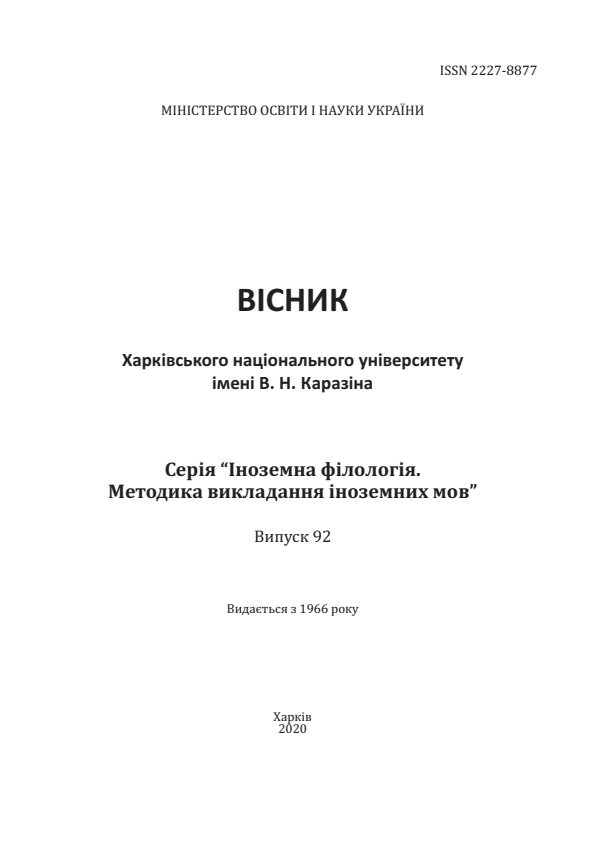Comparative analysis of the English and German modal verbs
Abstract
The article is focused on the problem of comparison of modal verbs in both languages – German and English. The comparative analysis is given on the base of use of this or that modal verb in different cases: in different tenses, mood taking into account their different functions. A special attention is paid to perfect infinitive forms of verbs and to the German modal verbs in particular which are used in perfect forms. All the examples are given in three languages – German, English and Ukrainian. When the use of modal verbs does not correlate in the given languages the explanation of this difference and all the possible versions of translation are given. We have provided the comparison of modal verbs and the modal patterns in German and English having different degrees of assumption, including the tables with a triple translation of a sentence, as well as the translation into the mother tongue, pointing an approximate degree of probability. In the article we also have made an attempt to consider the examples of using substitutes for modal verbs, which have different functions of modality. The examples of the modal verbs use in the Subjunctive mood and the possible variants of its translation are given. While comparing the use of modal verbs in German and English we have found definite similarities and some differences in the meanings of their grammar forms. The examples were taken from both German and English bilingual dictionaries and from the internet sites. Having made a substantial research of the material we may state that there is a certain coincidence in the meaning of approximately 80% of modal verbs in these languages and a difference in the use of the complex grammatical forms of modal verbs in both languages and the differences while translating them.
Downloads
References
/References
Langenscheidt. Großwörterbuch. Deutsch als Fremdsprache, KG Berlin und München, 2010, S.1343
Longman Dictionary of Сontemporary English. The living dictionary. Pearson Longman, 2005, P.1950
Paffen, K. A. Deutsch-Russisches Satzlexikon. VEB Verlag Enzyklopädie Leipzig, 1980, S.1686
Langenscheidt. Großwörterbuch. Deutsch als Fremdsprache, KG Berlin und München, 2010. 1343 S.
Longman Dictionary of Сontemporary English. The living dictionary. Pearson Longman, 2005, 1950 p.
Paffen, K. A. Deutsch-Russisches Satzlexikon. VEB Verlag Enzyklopädie Leipzig, 1980, B. I-II. 1686 S.




